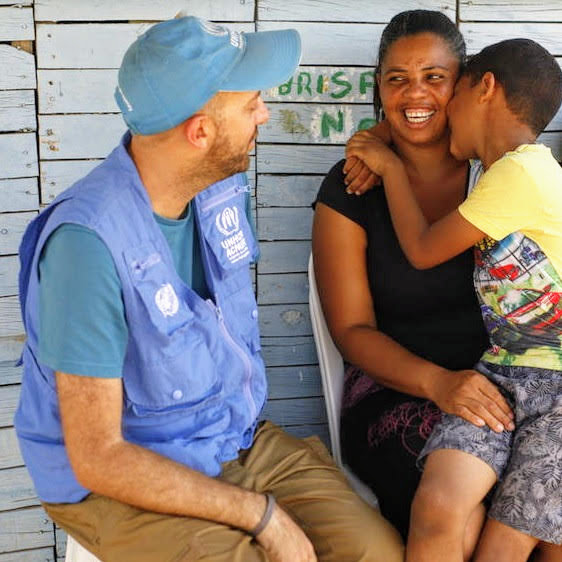Socioeconomic Impact of COVID-19, 2021
Mexico, 2021
Get MicrodataIdentification
UNHCR_MEX_2021_SEIC_v2.1
Socioeconomic Impact of COVID-19, 2021
| Name | Country code |
|---|---|
| Mexico | MEX |
Sample Frame, Households [sf/hh]
The COVID-19 pandemic is first and foremost a health shock, but the secondary economic shock is equally formidable. Access to timely, policy-relevant information on the awareness of, responses to and impacts of the health situation and related restrictions are critical to effectively design, target and evaluate programme and policy interventions. This research project investigates the main socioeconomic impacts of the pandemic on UNHCR people of concern (PoC) – and nationals where possible – in terms of access to information, services and livelihoods opportunities. Three geographic regions were taken into consideration: Southern Mexico, Mexico City and the Northern and Central Industrial Corridor. Two rounds of data collection took place for this survey, with the purpose of following up with the respondents.
Sample survey data [ssd]
Household
Version
v2.1: Edited, cleaned and anonymised data.
Scope
The scope includes:
- household demographics
- employment and livelihood
- knowledge about covid
- health
- food security
| Topic |
|---|
| Health |
| Livelihood and Social cohesion |
| Health and Nutrition |
| Food security |
Coverage
Southern Mexico, Mexico City, Northern and Central Mexico
Producers and sponsors
| Name |
|---|
| UNHCR |
Sampling
The ProGres database served as the sampling frame due to the unavailability of other reliable sources. Likewise, the sample was stratified by location and population groups based on country of origin helping to account for the different economic realities from one part of the country to another, as well as differences between nationalities. Following discussion with the UNHCR country team and regional bureau, three geographic regions were presented for consideration : a) Southern Mexico; b) Mexico City; and c) the Northern and Central Industrial Corridor. Additionally, partners expressed interest in the Venezuelan community as a separate group, primarily residing in Mexico City, Monterrey and Cancun. The population of the four groups represents 67% of the active registered refugees in Mexico. Out of the 35,140 refugee households in the four regions, 26,688 families have at least one phone number representing an overall high rate of phone penetration. Across regions of interest, Hondurans make up the single largest group of PoC in Southern Mexico (38%), and the Northern and Central Industrial Corridor (43%), whereas Venezuelans make up over half of the PoC population in Mexico City (52%). Based on the above, a sampling strategy based on four separate strata was proposed in order to adequately represent the regions and sub-groups of interest: 1. Southern Mexico – Honduran and El Salvadoran PoC population 2. Mexico City – Honduran, El Salvadoran and Cuban PoC population 3. Northern and Central Industrial Corridor – Hondurans and El Salvadoran PoC population 4. Venezuelan Population – Mexico City, Monterey (Nuevo Leon) and Cancun (Quintana Roo) A comparable sub-sample of the national population in the same locations PoC were sampled was also generated using random digit dialing (RDD). This was made possible through the inclusion of location-based area codes in the list of phone numbers, however selected participants were also asked about their current location as a first filter to proceed with the phone survey to ensure a comparable national sub-sample.
Post-hoc weights were generated for the PoC sample based on observable characteristics to ensure representativeness to the sample frame (i.e. ProGres), as were weights to account for attrition across survey rounds.
Survey instrument
Questionnaire contained the following sections: consent, knowledge, behaviour, access, employment, income, food security, concerns, resilience, networks, demographics
Data collection
| Start | End |
|---|---|
| 2021-02-16 | 2021-09-13 |
| Name |
|---|
| UNHCR |
| Innovations for Poverty Action (IPA) |
Data Access
UNHCR (2022). Mexico: Socioeconomic Impact of COVID-19, 2021. Accessed from: https://microdata.unhcr.org
Contacts
| Name | Affiliation | |
|---|---|---|
| Curation team | UNHCR | microdata@unhcr.org |
Metadata production
UNHCR_MEX_2021_SEIC_v2.1
| Name |
|---|
| UNHCR |
2022-03-22
